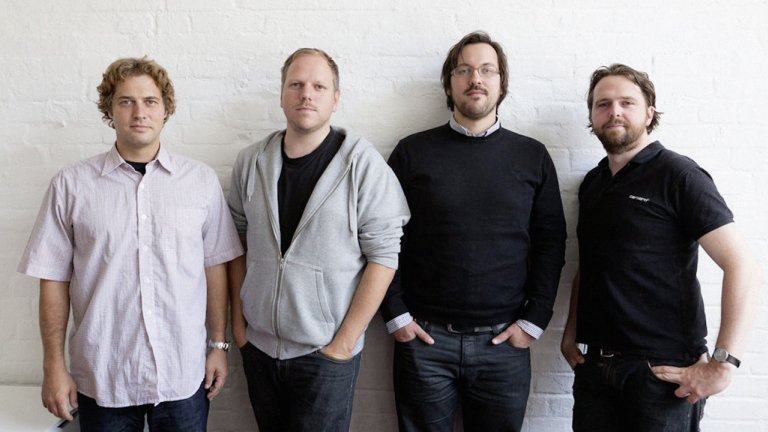
Ferret Makes the Difference
The young team of the company ferret go GmbH in Bernau successfully supports clients in their analysis of German-language texts. The sentiment analysis developed by the team makes it possible to exactly identify topics, statements and attitudes in publications of any kind. Together with linguists of the University of Potsdam, ferret go investigated whether its method could be applied to English-language texts as well. The state of Brandenburg supported this undertaking through the “Grand Innovation Voucher” (“Großer Innovationsgutschein”).
The company name “ferret” is a play on words. On the one hand, a ferret is a cute relative of the weasel, but on the other hand the word can also be used as a verb, as in “to ferret out”. The four founders of the company agreed that this double meaning encapsulates the purpose of the company perfectly. When they started out in spring of 2012, they wanted to improve media monitoring for clients from the fields of advertising, politics and economy by making it more precise, relevant and intuitive. They wanted to ferret out the very essence of textual statements. To this end, the computer linguists and statisticians of ferret go developed a unique method – the sentiment analysis. Thanks to this computer-aided analysis it was possible to identify the content of texts in a qualitative and individual way and to answer such question as: what are certain user commentaries, reviews or messages about? Which topics and subtopics are being picked up? Is the expressed attitude positive or negative? How often does content – and with what intensity – resurface, and in what environment?
Qualitative text analysis – in high demand in business and politics
For relevant players in the fields of business and politics, who want to understand and coin the attitudes and opinions of people, the answers to the above-formulated questions are of utmost importance. So it is no wonder that political parties, advertising agencies, branded companies, investment firms and media companies are among ferret go’s clients.
On behalf of its clients, ferret go monitors and analyses all kinds of text types, including studies, articles in newspapers and magazines, agency reports as well as postings and commentaries in social networks, such as Facebook, Google+ and Twitter. In the end, the clients receive, for example, thematic evaluations in the form of graphic user interfaces. ferret go is more and more often providing analysis through so-called application programming interfaces or “APIs”, which make it possible to integrate ferret go’s technologies into the clients’ systems.
In order to make its range of services attractive to globally operating companies, e.g. within the tourism industry, ferret go GmbH would like to apply the successful sentiment analysis to the English language. “However, this kind of further development required demanding preliminary studies,” said Andreas Nickel, one of three managers at ferret go. “With the limited resources of our small company we were unable to carry them out on our own,” he added.
A research partner was not far away
The working group Applied Computer Linguistics of the University of Potsdam was quickly identified as a potential research partner. The practitioners of the company ferret go knew the team of Prof. Manfred Stede from previous encounters. “Additionally, the short distance to the institute and thereby the possibility to get in touch quickly and personally were the decisive factors”, said Nickel.
ferret go Manager Nickel was also extremely satisfied with the consulting services provided by Brandenburg Invest. “Our contact person came straight to the point and discussed our prospects of success in an open and honest manner – it was like entering a boxing ring with a sparring partner.” Finally, the “Grand Innovation Voucher” (“Großer Innovationsgutschein”) of the State of Brandenburg made a substantial financial contribution to the project.
The result of the three-month research project yielded clear answers to ferret go’s questions and defined the next steps to be taken with regard to the sentiment analysis of English-language texts. The scientists from Potsdam empirically proved that the analytical method also works for the English language. During their work they closely studied and denominated the phenomena related to the expression of opinions in both languages, because despite all of their shared characteristics German and English nonetheless display a series of differences.